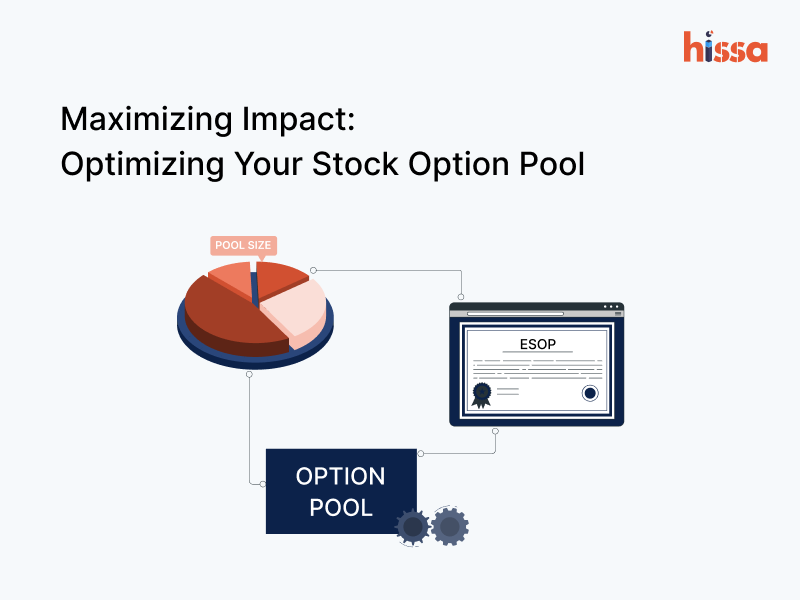A common dilemma that young companies face is choosing how to fund their operations. The form of financing has a direct bearing on the type of security a company issues for the money received, which in turn has an impact on its cash flow, ownership structure, and legal obligations. So, companies must choose each round of financing and each type of security carefully and wisely.
So, what are some factors that companies must consider?
- Purpose of financing
- Type of investors
- Risk and return
- Growth stage of company
- Financial health of company
- Type of round – seed round, Series A, B, etc.,
- Priced or non-priced round
What are the different types of financing available to companies?
Debt and equity two primary modes of financing available, and securities typically fall into either category. But over the years, companies have started issuing hybrid securities that have the components of both debt and equity.
In this blog, we focus on the types of securities that private limited companies most commonly issue in return for various forms of financing.
1. Equity financing
Equity financing is when companies raise funds by issuing equity shares in return for capital. Equity shares are units of share capital that provide ownership and voting rights to its holders. Equity shareholders are also entitled to receive a share in the profits of the company, as dividend. Issuing equity to a third party against funds received means that current shareholders in a company lose some of their ownership (their stake is diluted).
Equity shares can be of two types: common equity or shares with differential voting rights.
Equity shares can be:
- Common equity shares: Common equity shares entitle their holders to cast one vote for every share held or in proportion to their share in the paid-up capital. Common shareholders are at the very bottom of the investor chain and receive dividends or return of capital only after all other shareholders have been paid.
- Shares with differential voting rights (DVR): Shares with DVR provide the holders the right to receive dividend or exercise votes, which places them above or below ordinary shareholders. However, such shares can be issued only if the articles of association of the company permit.
Equity financing is predominantly sourced through private equity, where companies seek investments from seed investors, angel investors, or venture capitalists.
Another avenue within equity financing involves raising funds through Compulsorily Convertible Preference Shares (CCPS).
CCPS CAN BE:
- Priced CCPS: These are Compulsorily Convertible Preference Shares (CCPS) issued when the company’s value is known. They convert into equity at a set price.
- Non-Priced CCPS: These CCPS are issued when the company’s value isn’t fixed. Their conversion into equity doesn’t have a predetermined price. The conversion ratio is fixed at a later stage when the valuation is determined.
CCPS offer investors a blend of debt-like security and equity risk, with conversion to equity occurring at a predetermined time, upon shareholder request, or linked to specific future events like subsequent financing rounds or performance milestones.
2. Debt financing
Here, companies borrow funds, and debentures are issued to acknowledge the debt received. Since creditworthiness is the fundamental criterion for giving a loan, only companies with good financial performance can afford debt financing.
Debtor companies must repay the principal amount loaned, along with interest, after a fixed duration. Holders of debentures are creditors of the company and are given priority at the time of the its liquidation. Investors prefer debt financing since it guarantees a return of their investment and is more secure than equity. Debt financing also allow the company to raise long-term capital by either completely avoiding or postponing dilution.
Common examples of debt financing are:
- Non-convertible debentures (NCD): NCDs are debt instruments that do not carry an option to convert to equity. A company can issue NCD if it wants to raise capital without issuing equity, thus altogether avoiding dilution in the shareholding of existing shareholders. NCD are issued with an option for redemption after a given period. For the investor, holding an NCD assures regular flow of interest and return of capital.
- Redeemable Preference Shares (RPS): RPS are issued when a company plans to redeem shares and return the money. This also occurs without diluting ownership, and without giving away any voting rights either. Only profits or capital reserves can be used to redeem these shares. Therefore, typically companies with strong balance sheets raise money through RPS.
- Compulsory convertible debentures (CCD): CCDs convert to equity after a given period. Holders of CCDs receive interest on the debt component of the instrument, with the added advantage of receiving equity on conversion. Interest is paid quarterly, half yearly, or yearly, as per the terms of the investment agreement. Since CCDs are hybrid securities that convert to equity in the future, their holders will be included in the company’s cap table only when they actually convert.
3. Hybrid financing
When companies raise funds in exchange for securities that have the features of both debt and equity, it’s called hybrid financing. In the recent past, most investors, even angels, have sought preference shares for their investments, because preference shareholders are placed ahead, over equity shareholders, in the line to receive liquidation proceeds, thus protecting their capital.
Some hybrid securities are listed below:
- Optionally convertible preference shares (OCPS) give flexibility to holders to either redeem the shares or convert them to equity. Typically, redemption or conversion is linked to a certain date or event. Companies elect to raise funds through OCPS to retain the flexibility to redeem shares and return funds, thus avoiding dilution of ownership for existing shareholders. Investors like to keep the option to convert to equity, and benefit from the increase in valuation of the company over the period of OCPS.
- Optionally convertible debentures (OCD) come with an option for their holders to either redeem the money or convert to equity after a given period at a predetermined price. They include an interest component, payable until the maturity date. Investors choose OCD when they want flexibility to either be issued equity in the company or want guaranteed return of their capital.
- Convertible notes are issued when the company wants to raise an interim round of financing to meet its requirements until a full-fledged round can be raised. Usually, notes convert to equity based on a trigger factor. This could be a future round of financing, operation metrics, pure passage of time, or at the discretion of the company.
- Warrants give financial investors the right to convert their investment to equity within a given time in the future. If warrants are issued in combination with a convertible note, the warrants convert under the same terms as those of the convertible note in the subsequent round of financing.
- Loan to Future Equity: Companies repay loans borrowed to meet funding requirements by issuing equity to the loan provider instead of cash repayment. This approach may be undertaken if the company is short of cash or wants to conserve its reserves.
Securities are mainly evidence of funds received from the investors. For private limited companies whose shares are unlisted, venture equity and venture debt are the most common sources of funding. With the start-up ecosystem booming, there is no dearth of funds or investors. Therefore, companies must carefully model various financing rounds, and consider how different securities affect the cap table, before locking in on the security issued in each round.
More in this series:
Debt or equity – what works better for start-ups? And what do investors prefer?







